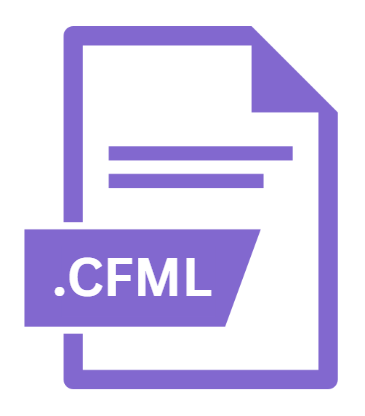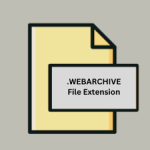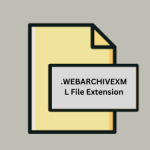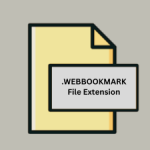.CFML File Extension

ColdFusion Markup Language File
| Developer | Adobe Systems |
| Popularity | |
| Category | Web Files |
| Format | .CFML |
| Cross Platform | Update Soon |
What is an CFML file?
The .CFML file extension is associated with ColdFusion Markup Language (CFML), a tag-based scripting language primarily used for web development.
Files with this extension contain CFML code, which is used to create dynamic web pages and web applications.
CFML files are typically processed by a ColdFusion server, which executes the CFML code and generates HTML, JavaScript, and other client-side code to be rendered by a web browser.
More Information.
ColdFusion was first released in 1995 by Allaire Corporation, founded by brothers Jeremy and JJ Allaire.
The platform quickly gained popularity due to its ease of use and powerful capabilities, enabling developers to build complex web applications with relatively little code.
ColdFusion’s use of CFML made it accessible to developers familiar with HTML and other markup languages.
The initial purpose of ColdFusion and CFML was to provide a simple and efficient way to develop and deploy web applications.
By abstracting many of the complexities of backend programming, ColdFusion allowed developers to focus on the functionality and user experience of their applications.
Origin Of This File.
The .CFML file extension is directly tied to ColdFusion, a rapid web application development platform created by Allaire Corporation in the mid-1990s.
ColdFusion was designed to simplify the process of connecting web pages to databases and other backend services, providing a robust framework for developing data-driven web applications.
File Structure Technical Specification.
CFML files are plain text files that contain a mix of CFML tags, HTML, JavaScript, and CSS. The structure of a CFML file is similar to HTML, with CFML tags embedded within the HTML code to provide server-side functionality.
CFML tags are enclosed in angle brackets, just like HTML tags, and typically start with the “cf” prefix.
Technical specifications for CFML files include:
- File Extension: .cfml (also .cfm)
- MIME Type: text/x-coldfusion
- Encoding: Typically UTF-8, but can be any text encoding
How to Convert the File?
Converting .CFML files to other formats typically involves extracting the relevant data and transforming it into the desired format. Here are a few common scenarios:
- To HTML: If you want to convert a CFML file to a static HTML file, you need to execute the CFML code on a ColdFusion server and save the generated HTML output.
- To PDF: ColdFusion provides built-in tags like
<cfdocument>to convert CFML output to PDF format. - To Other Languages: Converting CFML to another server-side language (e.g., PHP, ASP.NET) involves rewriting the logic and functionality in the target language.
Advantages And Disadvantages.
Advantages:
- Rapid Development: CFML simplifies many common web development tasks, allowing developers to create complex applications quickly.
- Integration: ColdFusion integrates easily with databases, email servers, and other web services.
- Cross-Platform: ColdFusion can run on various operating systems, including Windows, Linux, and macOS.
- Community and Support: ColdFusion has a large user base and extensive documentation, providing ample resources for developers.
Disadvantages:
- Cost: ColdFusion is a commercial product, and licensing can be expensive compared to open-source alternatives.
- Performance: While suitable for many applications, ColdFusion may not perform as well as some other platforms for extremely high-traffic websites.
- Dependency: Applications built with CFML are tightly coupled with the ColdFusion server, making migration to other platforms challenging.
How to Open CFML?
Open In Windows
- Adobe ColdFusion Builder: A commercial IDE specifically designed for CFML development.
- Sublime Text: A popular text editor with plugins available for CFML support.
- Visual Studio Code: A free, open-source code editor with CFML extensions.
Open In Linux
- Visual Studio Code: Available for Linux with CFML extensions.
- Sublime Text: Also available for Linux with CFML plugins.
- Vim: A highly configurable text editor that can be set up for CFML with appropriate syntax highlighting and plugins.
Open In MAC
- Sublime Text: As mentioned above, available for macOS with CFML support via plugins.
- Visual Studio Code: Also available for macOS with extensions for CFML.
- BBEdit: A powerful text editor for macOS that can be configured for CFML development.













